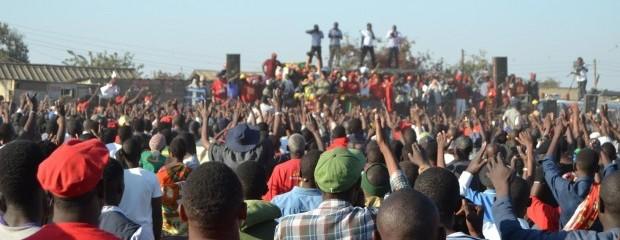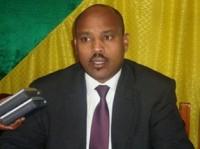Indicting a Head of State is a Political Act
If Sudan’s President Omar al-Bashir were to be indicted by the International Criminal Court (ICC) “” as is rumoured “” it would not be entirely a leap into the unknown. There are relevant precedents, providing some food for thought.
Most obviously, another African head of state, Charles Taylor, was indicted by another international court, the Special Court for Sierra Leone (SCSL), while he was still president of Liberia. The hardest part of any international indictment is physically apprehending the suspect. For that reason, in President Taylor’s case, the indictment was prepared and kept under seal in the prosecutor’s office before being publicly announced while Mr Taylor was attending a conference in Ghana in June 2003. Embarrassed, the Ghanaian authorities declined to arrest a fellow-African head of state, and simply allowed him to return home.
A couple of months later, after he had lost Liberia’s presidency, Charles Taylor went to live in exile in Nigeria as part of an internationally mediated deal intended to bring peace to his home country. No written document concerning this agreement has ever been made public, but it was generally understood that, in return for leaving Liberia, Mr Taylor would be free to live untroubled in his new location. However, in 2006 Mr Taylor was arrested by the Nigerian authorities, following intense pressure from the United States. This is how it came about that Liberia’s ex-president is now standing trial before the mixed Sierra Leonean and United Nations court that originally indicted him. The SCSL favours a European venue for the trial in the belief that if it were held in Sierra Leone, it could stir up passions and provoke a rescue attempt.
The most important lesson that can be drawn from the Taylor saga concerns the inevitability of political factors becoming mixed with purely legal issues when it comes to indicting a head of state, especially one who is still in office. In Charles Taylor’s case, he was persuaded in 2003 to accept exile in return for being allowed to leave power gracefully. This deal was effective in allowing a UN mission to establish itself in Liberia and to pave the way for a relatively successful transition to something like normality. But it now appears that this example will not easily be reproduced. The fact that Mr Taylor was subsequently arrested means that a similar diplomatic option can be ruled out in comparable circumstances, for example in the case of Zimbabwe’s President Robert Mugabe, who is said to be keenly aware of Charles Taylor’s fate. President Mugabe is most unlikely to accept any promises of a comfortable retirement in return for leaving office, fearing that if he gives up power he may be hauled before a judge within short order. No doubt President al-Bashir would follow the same line of reasoning if he ever got into the same embattled situation as his Zimbabwean colleague. Prosecutors in the Taylor case, and some UN officials, deny that they reneged on the original agreement to let Mr Taylor go into exile. They say that he continued to meddle in Liberian politics from his place of exile, thereby breaking the conditions of the deal, making null and void the actual or implied promise of immunity.
Nevertheless, whatever activities Charles Taylor undertook between 2003 and 2006 from his exile in Calabar, the message transmitted most powerfully by this sequence of events concerns his eventual lack of security. The Mugabes of this world are unlikely in the foreseeable future to trust promises given to them by international diplomats concerning their personal impunity after leaving office.
The fact is that bringing a head of state before an international court, no matter how grave the crimes he is suspected of having committed, does not easily fit an international system built on the principle of state sovereignty, in general application worldwide since 1945. This is a point that is certainly not lost on presidents like Mugabe and al-Bashir who have offended against humanitarian principles that are held in particular regard by sections of Western public opinion, and who, not least, have also annoyed the US government. Their argument that state sovereignty trumps all other considerations receives a more sympathetic hearing that would otherwise be the case due to the fact that a large number of UN member-states base their claim to legitimacy on a myth of origin in rejection of imperialism and other forms of foreign domination. However self-serving these claims, they will always carry weight as long as so many of the world’s leaders subscribe to the principle of national liberation.
On the face of it, Messrs Taylor, Mugabe and al-Bashir, to name just three, richly deserve to be punished for their actions. But, as their supporters do not fail to point out, if that is so, then what of the many other heads of state who are suspected of responsibility for major crimes? Inevitably, the first example that defenders of state sovereignty are likely to raise is that of the US president who invaded Iraq in 2003, probably illegally, and in any event with a public claim of justification that appeared weak even at the time. An enthusiast for international justice may argue that the indictment of a Taylor or an al-Bashir is only a foretaste of things to come, and that in the future all heads of state risk being held responsible for their actions. However, that seems unlikely in the extreme. The authority of any court of justice is directly related to the political forces that sustain it. A really effective system of world criminal justice could operate only in tandem with a system of world government. Realistically, this type of arrangement is not in sight. In any case, such a system would produce its own powerbrokers who would no doubt contrive to place themselves above the law, as powerful people habitually do. In the meantime, the hard fact seems to be that international justice is most likely to be done only when it is politically expedient. In other words, when the person indicted is both politically weak and has few friends as well as being the prima facie author of crimes against humanity.
None of this should be taken to imply that Charles Taylor or Omar al-Bashir are innocent. It does not mean that they do not deserve to be punished for crimes they appear to have committed. It does, however, mean that their indictment and eventual trial will never be free of political implications. An enthusiast for international justice may accept that this is so, and still wish to see the most egregious violators of human rights duly tried and punished.
It is the political element of international justice that helps explain why those indicted by the ICC until now have all been Africans. This is often seen as evidence of the neo-colonial ambitions of powerful states, but that is hardly the most pertinent point. The Ugandan Joseph Kony, for example, was offered to the ICC not as the result of a neo-colonial machination, but at the request of his own government. The rules of the ICC state that the accused must be a national of a State Party or a State otherwise accepting the jurisdiction of the Court. The surfeit of African indictments is due not to neo-colonialism, but to the fact that African governments have been the most assiduous in asking the Court to prosecute some of their citizens. The ICC’s intense involvement in Africa is primarily evidence of the weakness of African states, and of their propensity to use the international system for their own benefit. This further politicizes indictments. No matter how much various Congolese or Ugandan warlords may deserve to be punished, their indictment by an international court is also a blow in the factional politics of states in central Africa.
There is another point, too. Finding evidence to connect a former head of state directly to atrocities and war crimes has turned out to be surprisingly difficult, for example in the cases of Slobodan Milosevic and even Saddam Hussein. The same was true of South Africa after apartheid, where it proved impossible to pin personal blame for atrocities on the last National Party head of state, F.W. de Klerk, or even his blustering predecessor P.W. Botha. It is largely in response to this consideration that prosecutors in international trials seem to be moving steadily in the direction of arguing that a suspect is guilty of participation in a joint criminal conspiracy. In the case of Charles Taylor, the defence does not contest that terrible atrocities occurred in Sierra Leone. They argue only that Mr Taylor was not responsible. The onus is on the prosecution to prove the opposite. This will be made easier if the court agrees to accept evidence of a somewhat indirect connection “” in other words, that a group of people was responsible for war crimes in Sierra Leone, and that Charles Taylor was either a part of this group or so close to it as to qualify as a conspirator.
It could be said that most African states are so closely connected to serious crimes such as fraud, embezzlement and murder, that few senior officials could be confident of emerging unscathed if a charge of joint criminal conspiracy were laid against them. This too may cause some to hope that charges of war crimes against former heads of state are not proven.
Again, none of the above amounts to a solid argument for allowing heads of state to enjoy lifelong immunity for acts committed during their tenure of office. Anyone who cares for justice or human rights must be tempted to wish that guilty people should be punished for offences they have committed. But the deployment of a criminal justice mechanism with particular reference to Africa needs to be seen also in political terms, as evidence of the long term erosion of the sovereignty of states. Military interventions are steadily increasing, whether by the UN, by international alliances such as NATO (the North Atlantic Treaty Organization), regional groupings, or others. International justice, like military action, can be a legitimate international instrument, but neither is a replacement for politics and diplomacy.
Stephen Ellis senior researcher at the African Studies Centre at the University of Leiden and author of The Mask of Anarchy, about Liberia’s civil war.






